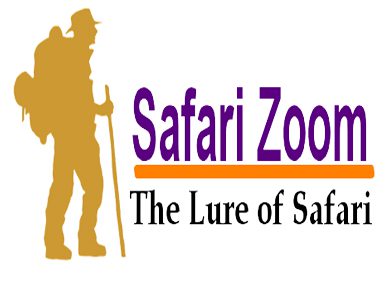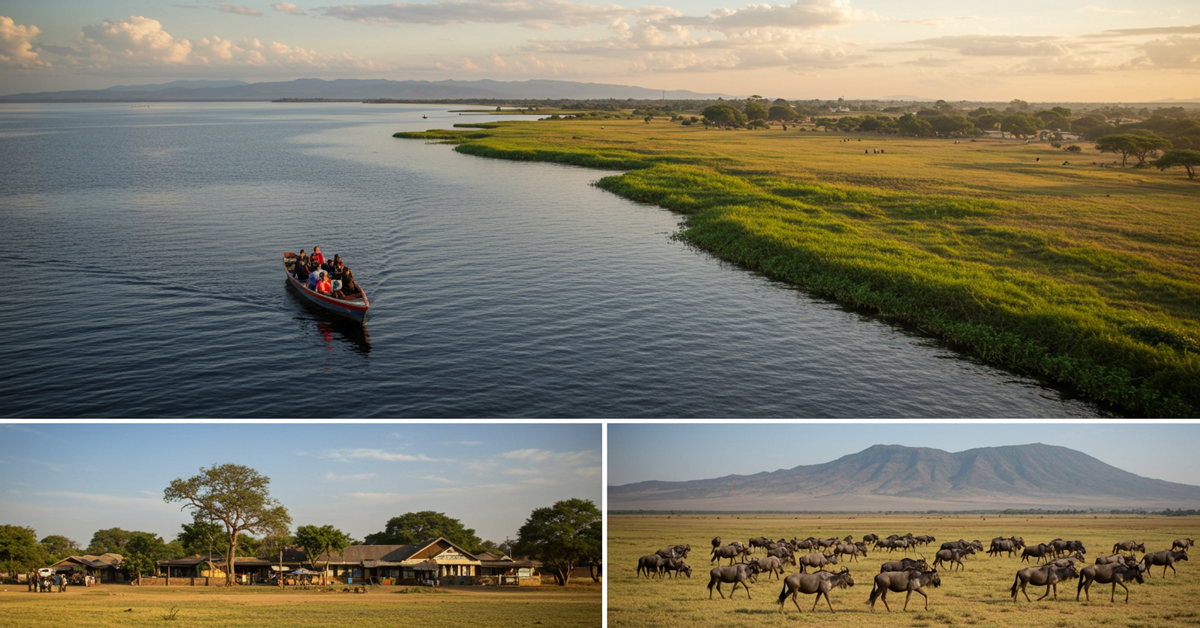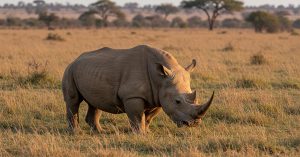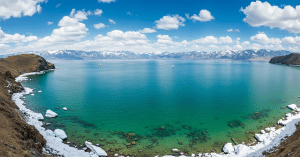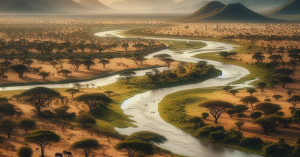10 Essential FAQs Every Tourist Should Know Before Visiting Tanzania
Tanzania, a stunning gem in East Africa, is a paradise for travellers seeking adventure, natural beauty, and rich culture. From the vast plains of the Serengeti to the pristine beaches of Zanzibar, this country has something for everyone. But before packing your bags, it’s essential to know the basics to ensure your trip goes smoothly.
This article answers the top 10 frequently asked questions every tourist should know before visiting Tanzania. Let’s dive in!
1. What Is the Best Time to Visit Tanzania?
Weather and Seasons
Tanzania experiences two main seasons: the dry season (June to October) and the wet season (November to May). The dry season is ideal for safaris, as animals are easier to spot around waterholes and open plains.
The wet season brings lush greenery and fewer crowds. However, heavy rains can make some roads and trails inaccessible.
Optimal Wildlife Viewing Periods
If you’re visiting for the Great Migration, plan your trip between July and September to witness wildebeests crossing the Mara River, an iconic event that attracts many visitors. Calving season, in January and February, is perfect for observing newborn wildlife and predators in action. It’s a fantastic time to observe newborn wildebeests and other wildlife. While the young animals are vulnerable, predators like lions and hyenas are often seen in action, making for thrilling wildlife encounters.
2. Do I Need a Visa to Visit Tanzania?
Visa Requirements for Different Countries
Most travellers will need a visa to enter Tanzania. Some nationalities enjoy visa-free entry, while others can obtain a visa upon arrival. Always check the latest visa policies for your country.
Tourist Visa: Most visitors are required to obtain a tourist visa, which can typically be applied for online or at a Tanzanian embassy or consulate before your trip.
Visa on Arrival: Some nationalities may have the option to obtain a visa on arrival at designated entry points in Tanzania. However, it’s recommended to check the latest regulations before traveling.
How to Apply for a Tanzanian eVisa
Applying for a visa online is straightforward. Visit the Tanzanian immigration website, fill out the application, upload the required documents, and pay the fee. Processing usually takes 2–3 business days.
3. Is Tanzania Safe for Tourists?
General Safety Tips
Tanzania is generally safe, but petty crimes like pickpocketing can occur in busy areas. Stick to well-known tourist zones, avoid displaying valuables, and stay aware of your surroundings.
Safety During Safari Tours
On safaris, follow your guide’s instructions. Never exit your vehicle without permission, and keep a safe distance from wildlife. Guides are well-trained to ensure your safety.
4. What Are the Top Attractions in Tanzania?
National Parks and Wildlife Safaris
The Serengeti, Tarangire, Ruaha and Ngorongoro Crater offer unparalleled wildlife experiences. You’ll see the Big Five and witness awe-inspiring landscapes.
Beaches and Islands
Zanzibar, with its turquoise waters and historic Stone Town, is a must-visit for beach lovers. Pemba and Mafia Islands offer quieter alternatives.
Mount Kilimanjaro
Dreaming of conquering Africa’s highest peak? Kilimanjaro offers various routes catering to different fitness levels. A guided trek ensures safety and success.
5. What Should I Pack for My Trip?
Safari Essentials
Pack light, breathable clothing in neutral tones to blend into the environment. Don’t forget a good pair of binoculars, a wide-brimmed hat, and sunscreen.
General Travel Items
Bring power adapters, insect repellent, travel insurance details, and a small first-aid kit. Having a waterproof bag for electronics is also a good idea during the rainy season.
6. What Are the Local Customs and Etiquette?
Greetings and Communication
Tanzanians value politeness and respectful communication. A simple “Jambo” (hello) or “Habari” (how are you?) goes a long way in building rapport. Handshakes are common, but avoid using your left hand for greetings or handling objects as it’s considered impolite.
Dress Code Considerations
While Tanzania is relatively relaxed, it’s crucial to dress modestly, especially in rural areas or on Zanzibar’s predominantly Muslim islands. Women should avoid wearing revealing clothing, and men should steer clear of shorts in conservative areas.
7. How Can I Get Around Tanzania?
Getting around Tanzania can be an exciting adventure, and there are several options available to suit different preferences and budgets. Here’s a breakdown of the main transportation methods:
i. Public Transport
Buses and Dala-Dalas: Towns and cities are well-connected by a network of buses and dala-dalas (minibuses). These are a popular and affordable way to travel, though they can be crowded and may not always adhere to strict schedules.
ii. Taxis and Ride-Sharing
Taxis: While traditional taxis are available, they may not be as common in some areas. It’s advisable to negotiate the fare before starting your journey.
Ride-Sharing: Services like Uber or Bolt have become popular in urban areas, providing a convenient and reliable option for getting around.
iii. Bodabodas and Bajajis
Bodabodas: These are motorcycle taxis that offer a quick and flexible way to navigate through congested city streets. They are often very affordable but ensure you wear a helmet and prioritize safety.
Bajajis: These are three-wheeled vehicles that provide a comfortable and convenient mode of transport for short distances. They are a bit more stable than bodabodas and can accommodate a small number of passengers.
iv. Private Transfers
Many hotels and lodges offer in-house shuttles to transport guests to and from airports and other transport hubs. This can be a comfortable and hassle-free option.
v. Self-Driving
If you prefer more independence, renting a car is an option. However, be aware that road conditions can vary, and driving styles may differ from what you’re used to. It’s essential to familiarize yourself with local traffic laws.
vi. Air Travel
For longer distances, especially between major cities or to remote areas, domestic flights are available. This can save time and provide stunning aerial views of Tanzania’s landscapes.
vii. Rail Travel
Tanzania has a rail network, but it is less commonly used by tourists. It can be an interesting way to see the countryside if you have the time.
With a variety of transportation options, including bodabodas and bajajis, getting around Tanzania can be tailored to your travel style. Whether you choose public transport, ride-sharing, or private transfers, each method offers a unique way to experience the beauty and culture of this incredible country.
8. What Currency Is Used in Tanzania, and How Should I Handle Money?
Tanzanian Shilling Basics
The Tanzanian Shilling (TZS) is the official currency. U.S. dollars are widely accepted for tourism-related activities, but ensure your bills are dated 2006 or later, as older notes may not be accepted.
Payment Methods
Credit cards are accepted in high-end hotels and safari lodges, but cash is king in smaller towns and rural areas. ATMs are available in major cities, though withdrawal limits may apply. It’s wise to carry small denominations for tipping and purchases at local markets.
9. Do I Need Any Vaccinations or Health Precautions?
Recommended Vaccinations
Yellow fever vaccination is mandatory for travellers from yellow fever-endemic countries. Other recommended vaccines include hepatitis A and B, typhoid, and tetanus. Consult your doctor well in advance to ensure you’re covered.
General Health Tips
Malaria is a risk in Tanzania, so take prophylactic medication and use mosquito repellents. Stick to bottled or boiled water and avoid raw or undercooked foods to prevent stomach issues.
10. What Languages Are Spoken in Tanzania?
Importance of Swahili
Swahili is the national language and is widely spoken across the country. Learning basic phrases like “Asante” (thank you) or “Karibu” (welcome) can make your interactions smoother and more enjoyable.
English Proficiency
English is commonly used in cities, tourist hubs, and by guides. However, in remote areas, having some Swahili phrases at your disposal can be immensely helpful.
Final Words
Tanzania is a dream destination that offers unforgettable adventures, from the iconic Serengeti plains to the peaks of Mount Kilimanjaro and the serene beaches of Zanzibar. By addressing these essential FAQs, you’ll be well-prepared for a safe and enriching experience. Respect the local culture, stay informed, and embrace everything this incredible country has to offer.
Bonus FAQs
1. Is tipping customary in Tanzania?
Tipping is appreciated, especially for guides, drivers, and hotel staff. A tip of $10–$20 per day is standard for safari guides.
2. Can I drink tap water in Tanzania?
No, it’s best to stick to bottled or boiled water to avoid waterborne illnesses.
3. How much does a typical safari cost?
Safari costs vary based on duration and luxury level but range from $200 to $1,000+ per day per person.
4. Can I use drones for photography in Tanzania?
Drone use is heavily regulated and often requires a special permit from the Tanzanian Civil Aviation Authority.
